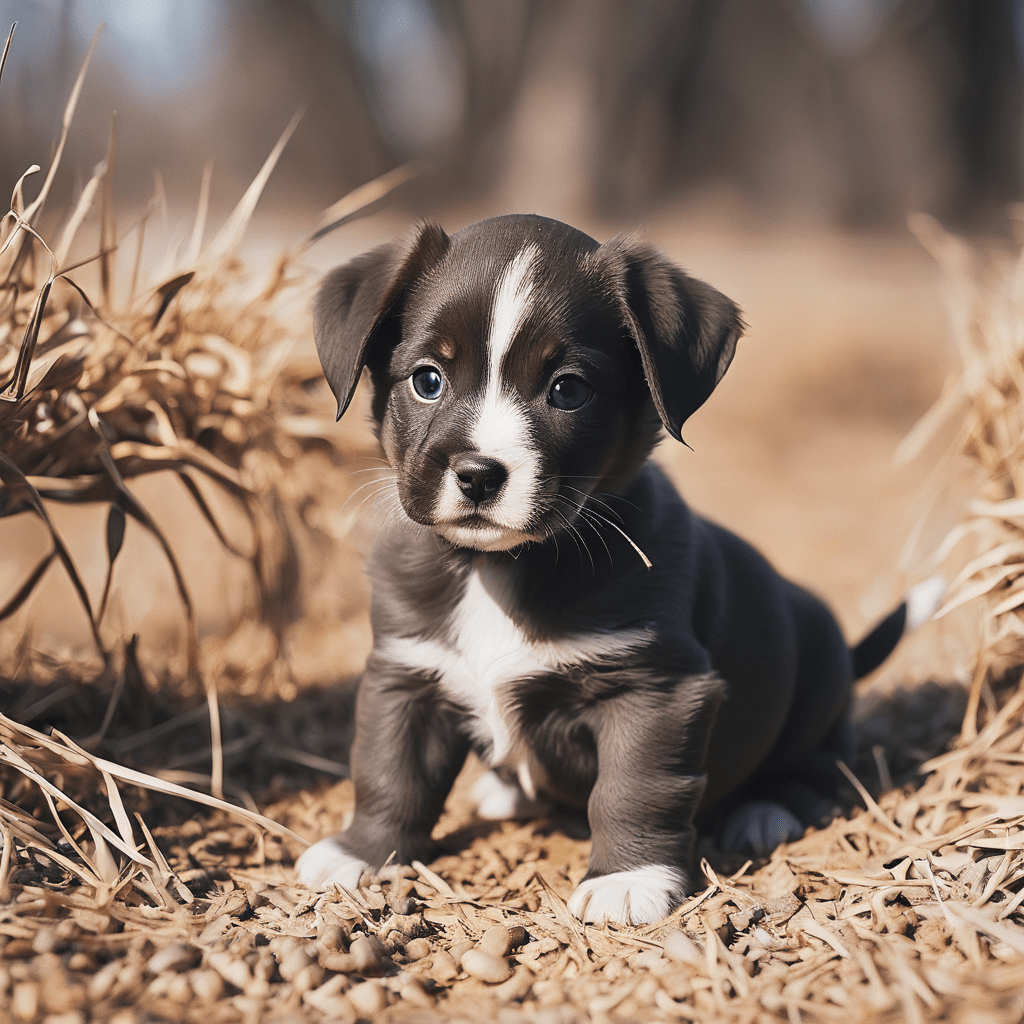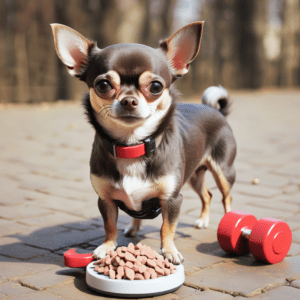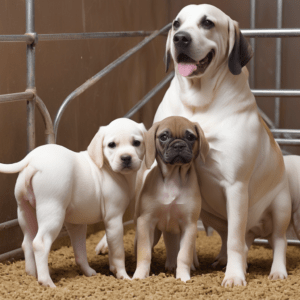How much water should my puppy drink So, you’ve just welcomed a new furry friend into your home – a playful, adorable puppy who’s stolen your heart. Amidst all the excitement, you might find yourself wondering, “How much water should my puppy drink?” This is a common issue asked by new pet owners, and the general assumption is that puppies need to drink plenty of water to stay healthy.
But let’s dispel that misconception today.Contrary to popular belief, puppies don’t necessarily need to drink gallons of water every day to thrive. Like humans, their water requirements vary depending on several factors, including their age, size, activity level, and environment. Understanding these factors is crucial to ensuring your puppy stays hydrated and healthy.
Understanding Puppy Hydration Needs
Puppies, like adult dogs, rely on water to regulate their body temperature, aid digestion, and transport essential nutrients throughout their bodies. However, because puppies are still growing and developing, their hydration needs may differ from those of adult dogs.
“puppy hydration tips” and “puppy health and hydration” are relevant here, as we delve into the importance of water for overall puppy health and growth.
It’s essential to establish from the outset that water is not just a beverage for puppies; it’s a vital component of their overall well-being.

Factors Influencing Puppy Water Requirements
Understanding the factors that influence your puppy’s water requirements is crucial for ensuring they stay adequately hydrated. Here, we’ll explore these factors in more detail to help you better meet your puppy’s hydration needs.
Age
Age plays a significant role in determining how much water your puppy needs. Younger puppies, especially those who are still nursing, require more water than older puppies. As puppies grow, their water requirements may change, so it’s essential to adjust their intake accordingly.
Size and Breed
The size and breed of your puppy also influence their water requirements. Larger breeds typically need more water than smaller ones due to their higher metabolic rates and greater body mass.
Additionally, certain breeds, such as those with thick coats or those bred for strenuous activities like hunting or herding, may require more water to stay hydrated.
Activity Level
A puppy’s activity level can affect how much water they need to drink. Puppies who are more active or engage in vigorous exercise will need to replenish fluids lost through sweating and panting. It’s essential to provide access to water during and after physical activity to prevent dehydration.
Environmental Factors
Environmental factors such as temperature and humidity can also impact your puppy’s water requirements. In hot or humid weather, puppies may need to drink more water to stay cool and hydrated.
Similarly, puppies who spend a lot of time outdoors or in dry climates may need extra water to compensate for moisture loss.

Health Conditions
Certain health conditions, such as diarrhea or vomiting, can increase your puppy’s risk of dehydration. Puppies with these conditions may need extra fluids to replace those lost through illness. It’s essential to consult with your veterinarian if you notice any signs of illness or dehydration in your puppy.
Signs of Dehydration in Puppies
As a responsible pet owner, being able to recognize the signs of dehydration in your puppy is essential for their well-being. Dehydration occurs when your puppy’s body loses more water than it takes in, leading to a lack of fluids that are vital for their bodily functions.
Here, we’ll delve into the common signs of dehydration in puppies so you can take prompt action if needed.
Dry or Sticky Gums
Healthy puppies should have moist, pink gums. Dry or sticky gums can indicate dehydration. To check your puppy’s gums, gently lift their lip and observe the color and moisture level. If their gums appear dry or sticky, it may be a sign that they are dehydrated.
Lethargy
A dehydrated puppy may appear unusually tired or lethargic, lacking their usual energy and enthusiasm for play. If your puppy seems more sluggish than usual or shows little interest in activities they typically enjoy, it could be a sign of dehydration.
Sunken Eyes
Dehydration can cause a puppy’s eyes to appear sunken or dull, rather than bright and alert. Check your puppy’s eyes
for any changes in appearance, such as a lack of moisture or a hollowed-out appearance. Sunken eyes are a telltale sign that your puppy may be dehydrated.

Loss of Appetite
A puppy who is not drinking enough water may also lose interest in food, leading to a decreased appetite.
If your puppy suddenly shows little interest in their meals or refuses to eat altogether, it could be a sign that they are dehydrated.
Skin Elasticity
You can perform a simple “skin tent” test by gently pinching your puppy’s skin between their shoulder blades. In a well-hydrated puppy, the skin should snap back into place immediately. However, if your puppy is dehydrated, the skin may
take longer to return to its normal position, indicating decreased skin elasticity.
Panting
While panting is normal for dogs, excessive panting can be a sign of dehydration. Puppies may pant more than usual if
they are dehydrated, especially after physical activity or in hot weather. If you notice your puppy panting excessively, it’s essential to offer them water and monitor their condition closely.
Weakness or Collapse
In severe cases of dehydration, puppies may experience weakness, staggering, or even collapse. If your puppy shows signs of extreme lethargy or has difficulty standing or walking, seek veterinary attention immediately, as dehydration can quickly become a life-threatening condition.
Establishing Healthy Drinking Habits for Your Puppy
Now that you’re aware of the signs of dehydration in puppies, let’s explore how you can establish healthy drinking habits
for your furry friend to prevent dehydration and promote overall well-being.

Consistency is Key
Consistency is essential when it comes to ensuring your puppy gets enough water.
Make sure to provide fresh, clean water in a suitable water bowl at all times. Place the water bowl in a location where
your puppy can easily access it throughout the day, but away from their food bowl and sleeping area to prevent contamination.
Regular Monitoring
Regularly monitor your puppy’s water intake to ensure they are drinking enough to stay hydrated. Pay attention to how much water they typically consume each day and be on the lookout for any changes in their drinking habits. If you notice a significant decrease in your puppy’s water intake, it could be a sign of an underlying health issue or dehydration.
Offer Water Frequently
Offer water to your puppy frequently, especially during hot weather or after physical activity. Puppies may need to drink more water in these situations to stay cool and hydrated. Keep an eye on the water level in their bowl and refill it as needed throughout the day to ensure they always have access to fresh water.
Encourage Drinking
Encourage your puppy to drink water by offering praise and rewards when they do so. You can also add flavor to their
water by mixing in a small amount of low-sodium chicken or beef broth to make it more enticing.
Some puppies may prefer drinking from a running water source, so consider using a pet fountain to encourage them to drink more.
Watch for Signs of Dehydration
Continuously monitor your puppy for signs of dehydration, such as dry gums, lethargy, or sunken eyes. If you notice any of these signs, encourage your puppy to drink water immediately and seek veterinary attention if necessary. Early intervention is crucial for preventing dehydration from becoming a serious health issue.
Consult Your Veterinarian
If you have any concerns about your puppy’s hydration or drinking habits, don’t hesitate to consult your veterinarian. They can provide personalized recommendations based on your puppy’s age, breed, and health status to ensure they stay properly hydrated and healthy.
Choosing the Right Water Bowl for Your Puppy
Selecting the appropriate water bowl for your puppy is crucial for promoting healthy hydration habits and ensuring they have access to clean, fresh water at all times. Here’s what you need to consider when choosing the right water bowl for your furry friend:

Size Matters
Opt for a water bowl that is appropriately sized for your puppy’s breed and age. A bowl that is too small may not hold
enough water for larger or more active puppies, leading to frequent refills.
Conversely, a bowl that is too large may be cumbersome for smaller puppies to drink from comfortably. Choose a bowl that provides an adequate amount of water without overwhelming your puppy.
Material
Water bowls come in a variety of materials, including stainless steel, ceramic, plastic, and glass. Stainless steel bowls are durable, easy to clean, and resistant to bacteria growth, making them an excellent choice for puppies. Ceramic
bowls are also a popular option, but make sure to choose one that is lead-free and dishwasher safe. Avoid plastic bowls, as they can harbor bacteria and may contain harmful chemicals.
Design
Consider the design of the water bowl and how it will affect your puppy’s drinking experience. Some puppies prefer
shallow bowls, while others may prefer deeper bowls. Look for a bowl with a wide base to prevent tipping and spilling,
especially if your puppy is playful or rambunctious. Additionally, choose a bowl with a non-slip base to prevent it from sliding around on smooth surfaces.
Accessibility
Ensure that the water bowl is easily accessible to your puppy at all times. Place the bowl in a location where your puppy can reach it comfortably without straining or stretching. Avoid placing the bowl in high-traffic areas or near loud noises, as this may discourage your puppy from drinking.
Number of Bowls
If your property is huge or has numerous levels, you should think about installing additional water bowls throughout the space.. This ensures that your puppy always has access to water no matter where they are in the house. Additionally,
having multiple bowls reduces the likelihood of competition or conflicts between multiple pets sharing the same bowl.
Monitoring and Managing Puppy Water Intake
Monitoring and managing your puppy’s water intake is essential for ensuring they stay properly hydrated and healthy. Here are some tips for effectively monitoring and managing your puppy’s water intake:
Establish a Routine
Create a consistent schedule for offering water to your puppy. Offer water at regular intervals throughout the day, such
as first thing in the morning, after meals, and before bedtime. By establishing a routine, you can help your puppy develop healthy drinking habits and ensure they get enough water each day.

Track Water Consumption
Pay attention to how much water your puppy drinks each day. Keep track of the amount of water you pour into their bowl and how much is left at the end of the day. This can help you monitor changes in your puppy’s drinking habits and identify any potential issues early on.
Adjust for Activity Level
Take your puppy’s activity level into account when managing their water intake.
Puppies who are more active or spend time outdoors may need to drink more water to stay hydrated. Offer water more
frequently during periods of increased activity and monitor their hydration closely.
Offer Water After Meals
Encourage your puppy to drink water after meals to aid in digestion and prevent dehydration. Offering water after meals
also helps rinse their mouth and keep their teeth clean. Make sure to wait at least 30 minutes after feeding before
offering water to avoid diluting their stomach acids.
Monitor Urination
Keep an eye on your puppy’s urination habits to gauge their hydration status. Healthy puppies should urinate regularly throughout the day, and their urine should be pale yellow in color. If you notice any changes in the frequency or color of your puppy’s urine, it could indicate dehydration or an underlying health issue.
Provide Access to Fresh Water
Ensure that your puppy always has access to clean, fresh water. Check their water bowl regularly and refill it as needed to ensure they never run out of water. Consider using a water fountain or multiple water bowls throughout your home to make water more accessible to your puppy.
Consult Your Veterinarian
If you have any concerns about your puppy’s water intake or hydration status, don’t hesitate to consult your veterinarian. They can provide guidance and recommendations tailored to your puppy’s specific needs and help address any underlying health issues that may be affecting their hydration.
Expert Advice on Puppy Hydration
When it comes to keeping your puppy properly hydrated, expert advice can be invaluable. Here, we’ll share insights and recommendations from veterinary professionals on ensuring optimal hydration for your furry friend:

Provide Fresh Water
“Always make sure your puppy has access to fresh, clean water at all times,” advises Dr. Emily, a veterinarian with years of experience in pet care. “Regularly check their water bowl and refill it as needed to ensure they never go thirsty.”
Monitor Water Intake
“Monitor your puppy’s water intake closely, especially during hot weather or after exercise,” recommends Dr. Michael, a
certified veterinary nutritionist.
Consider Water Quality
“Pay thought to the grade of water you choose to give your puppy,” suggests Dr.. Sarah, a holistic veterinarian. “full or clean water is the most, as it reduces pollution and pollutants that could harm your pet’s health.”
Be Mindful of Overhydration
“When it’s vital to maintain the dog nourished, be wary of overhydration,” advises Dr.James, a veterinarian specializing in canine health. “Offer water in moderation and avoid excessive drinking, as it can lead to water intoxication, which is potentially fatal.”
Address Health Issues Promptly
“If you notice any changes in your puppy’s drinking habits or signs of dehydration, don’t hesitate to seek veterinary care,” advises Dr. Michelle, a veterinary emergency medicine specialist.
Adjust for Individual Needs
“Every puppy is unique so it’s important to tailor the process of hydration to fulfill their specific needs,” according to Dr.
David, a veterinarian focusing on preventative care”When managing their water intake, consider their age, quantity,
kind, and degree of activity.”
Promote Hydration Through Diet
“Incorporate moisture-rich foods into your puppy’s diet to help promote hydration,” suggests Dr. Jessica, a veterinary nutritionist. “Wet or canned food, as well as fresh fruits and vegetables, can contribute to their overall water intake and
support their hydration needs.”
Seek Professional Guidance
“If you’re unsure about how to best hydrate your puppy or have any concerns about their health, don’t hesitate to consult with a veterinarian,” advises Dr. Alex, a board-certified veterinary specialist. “They may offer unique direction and guidance to help the dog continues content and healthy.”

Conclusion
Ensuring that your puppy stays properly hydrated is essential for their overall health and well-being. By understanding their hydration needs and implementing the expert advice provided, you can help prevent dehydration and promote
optimal hydration habits. Here’s a summary of key points and practical tips for promoting hydration in your furry friend:
Water is Vital: Water is crucial for regulating body temperature, aiding digestion, and transporting nutrients in your puppy’s body.
Factors Affecting Hydration: Age, size, breed, activity level, and environmental factors all play a role in determining how much water your puppy needs.
Signs of Dehydration: Watch for dry gums, lethargy, sunken eyes, loss of appetite, decreased skin elasticity, panting, weakness, or collapse.
Establish Healthy Drinking Habits: Provide fresh, clean water in a suitable bowl, offer water frequently, and monitor your puppy’s water intake.
Choose the Right Water Bowl: Select a bowl that is the right size, material, and design for your puppy’s needs.
Monitor and Manage Water Intake: Establish a routine, track water consumption, adjust for activity level, offer water after meals, and provide multiple water bowls.
Seek Expert Advice: Consult with a veterinarian for personalized recommendations and guidance on hydration for your puppy.










